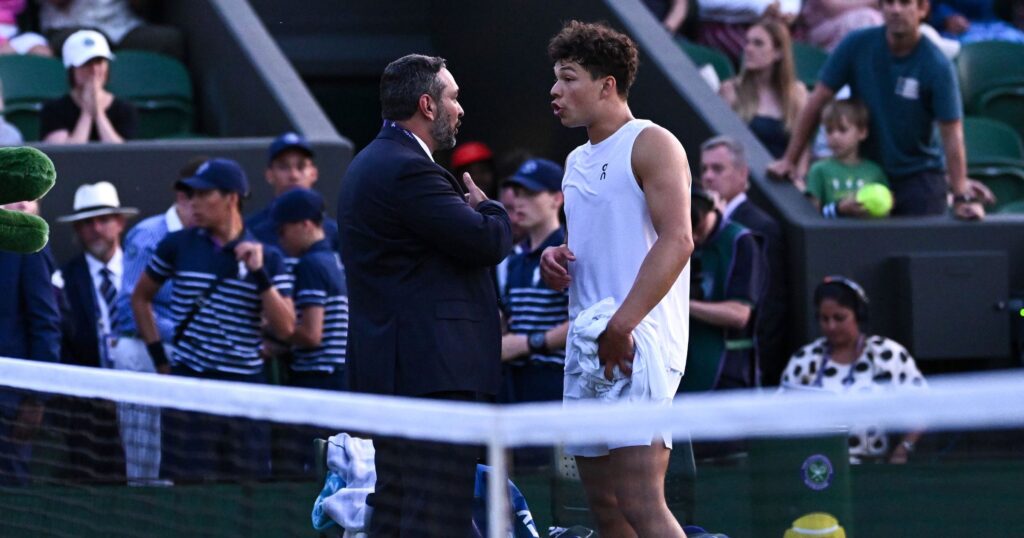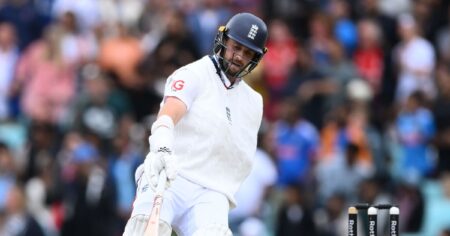On a thrilling Thursday night at Wimbledon, American tennis player Ben Shelton found himself in a precarious position as the match he was dominating was abruptly suspended due to insufficient light. Shelton was on the cusp of securing a victory over Australia’s Rinky Hijikata, leading with a scoreline of 6-2, 7-5, and 5-4 when officials deemed the conditions unfit for continued play at approximately 9:30 PM. The atmosphere was charged, with Shelton visibly frustrated, leading to a dramatic scene on the No. 2 Court where an official had to intervene to calm tensions between Shelton and the umpire. The discontent was palpable not just from Shelton but also from a crowd that voiced their displeasure at the situation unfolding before them.
Prior to the contentious suspension, there had been discussions between Shelton and Hijikata regarding the potential suspension of the match. These conversations happened at both the start of the third set and again three games later—moments when both players expressed their concerns about the court conditions. Despite their mutual apprehension and the officials’ previous advice to keep playing, it wasn’t until Shelton was tantalizingly close to winning that the decision was taken to suspend the match. This sudden halt not only disrupted Shelton’s momentum but compounded his frustration, particularly as he had previously failed to convert three match points on Hijikata’s serve just before the match was interrupted.
The predicament highlighted an ongoing theme that has pervaded this year’s Wimbledon. Play being halted at night has sparked significant debate during these initial days of the tournament. Earlier in the week, another American player, Taylor Fritz, faced a similar dilemma, being instructed to stop his match at 10:20 PM while he was on the brink of entering a fifth-set battle against Giovanni Mpetshi Perricard. Fritz, too, believed there was sufficient time to complete his match on the famous No. 1 Court before the obligatory 11 PM curfew. These instances of premature match suspensions have cast a shadow over an otherwise exciting tournament, raising questions about scheduling protocols and the conditions under which play continues.
As the matches proceed, the opening week of Wimbledon has thus far seen predominantly sunny skies, drawing in large crowds and showcasing the tournament’s lively spirit. Highlights from the matches are being aired every night on platforms such as TNT Sports and discovery+, much to the delight of tennis fans around the world. However, the weather forecast indicates that while Friday’s conditions are expected to remain warm and sunny, a shift towards more unsettled weather may occur over the weekend, adding an element of unpredictability to the upcoming matches.
As Ben Shelton prepares to return to the court on Friday to finish his match against Hijikata, one cannot help but speculate about how the tensions from the previous night will influence the continuation of play. Will the frustrations aid in driving Shelton to secure a decisive victory, or will the emotional strain of the interruption linger, affecting his performance? Each player will need to muster their mental strength to successfully navigate the challenges of both the match and the evolving weather conditions. The unfolding drama and intensity of the tournament remain high as the world’s best athletes vie for success on the prestigious grass courts of Wimbledon.












